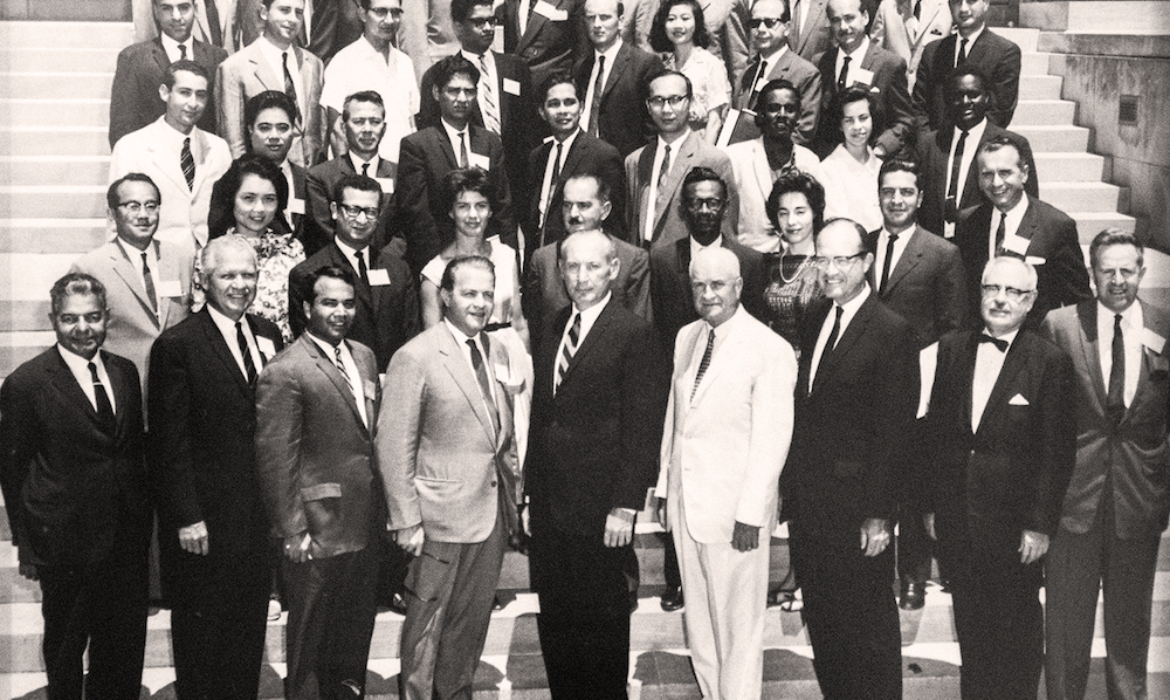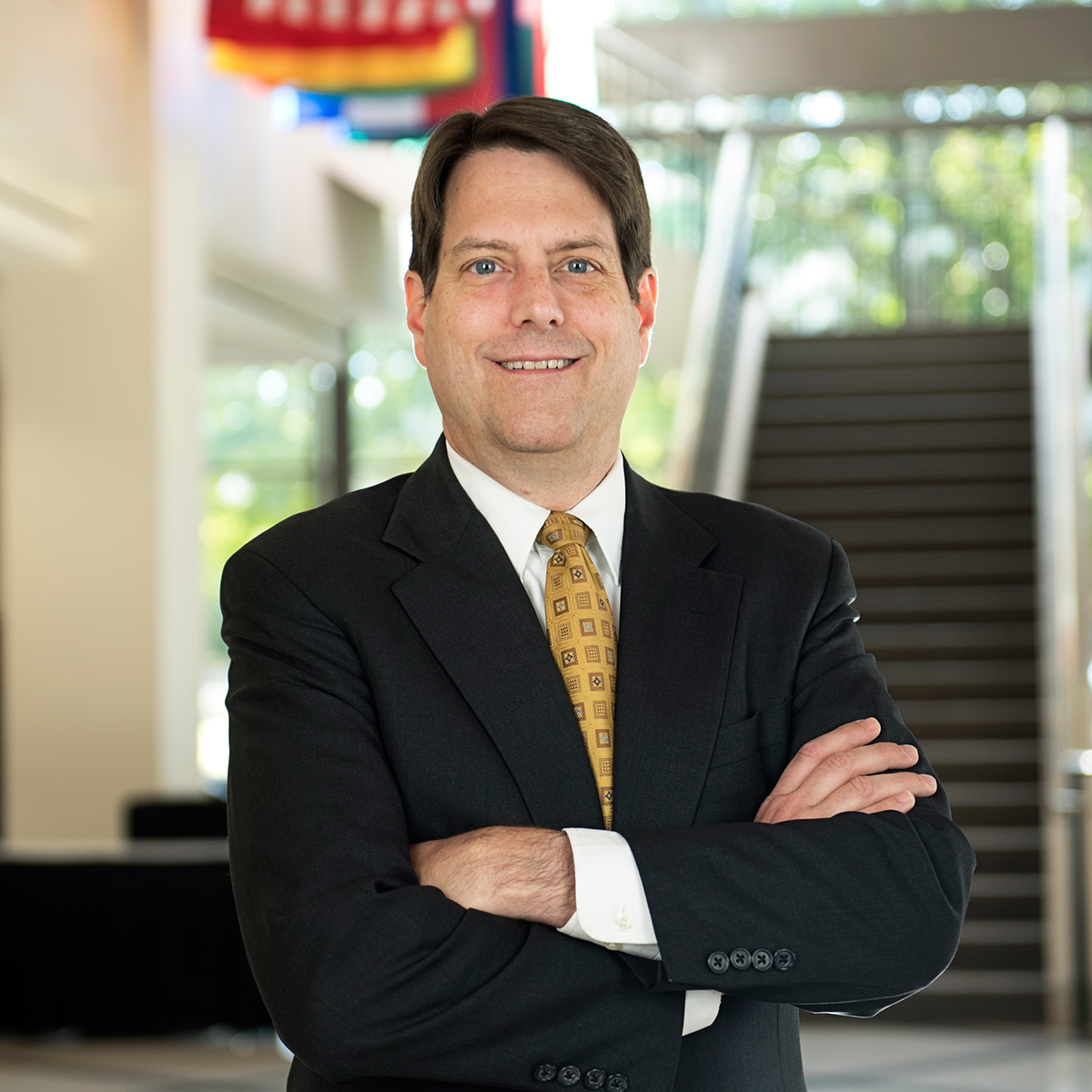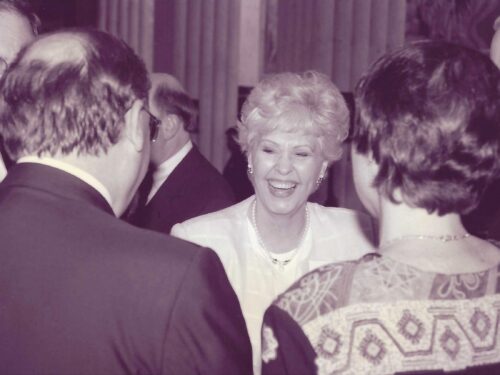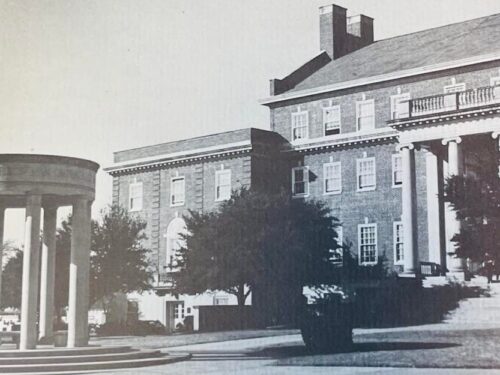
The Center for American and International Law was born in 1947, an institution conceived and created by Robert Storey as he became dean of the law school at Southern Methodist University.
The vision that animated Storey’s efforts in founding CAIL was rooted in his prewar career as a lawyer, but it received its particular focus from his service as Executive Trial Counsel for the team of U.S. lawyers who prosecuted the principal Nazi war criminals at Nuremberg during 1945‒1946.
There will be many occasions to celebrate Dean Storey in this year of CAIL’s 75th anniversary. But I would like to begin my reflections in 2022 with a note about his boss at Nuremberg—Robert H. Jackson, who acted as chief U.S. prosecutor at Nuremberg while on leave from his role as a U.S. Supreme Court Justice. Dean Storey is the father of CAIL, but Justice Jackson is something akin to its godparent.
Prof. John Q. Barrett* recently published a letter that Justice Jackson wrote to his son on the day after the Japanese attack on Pearl Harbor in 1941. In urging his son to finish law school rather than dropping out immediately to join the military, Justice Jackson wrote:
The only use of war is to re-establish equilibriums which permit people to live in peace. … That we will carry on successfully, I have no doubt. It will be different when the conflict is over … [when] recriminations and accusations begin. … The philosophy of the law and the culture of the democratic order comes [sic] close to being the soul of the American people, and the services rendered to it are undramatic, but timeless. … [T]here is a much more important front on which men of your temperament and mine can battle than the front of war. That is the front of organizing a peace so that it will stay peaceful …. the …Robert Jackson, U.S. Supreme Court Justice
Reflecting the enduring influence that Justice Jackson had on Dean Storey, CAIL’s mission and vision are absolutely aligned with the former’s prescient observations from December 1941:
- Service to the philosophy of law and the culture of the democratic order—the soul of the American republic and a hallmark of kindred communities—is undramatic, but timeless; and
- Effective efforts to use the tools of law and reason to organize peace so that it will stay peaceful are as vital as military efforts to re-establish that peace.
May all of us who devote ourselves to the professions of law and law enforcement draw inspiration from such predecessors and strive to add our own contributions to their enduring ones.
*Professor Barrett teaches at St. John’s University School of Law and is a Fellow of the Robert H. Jackson Center.
**Bill Jackson finished his law degree before joining the U.S. Navy and later acted as his father’s personal assistant during the Nuremberg trial.
About the Author
Thomas (T.L.) Cubbage is President of The Center for American and International Law. A seasoned lawyer with experience in both private practice and the federal government, Cubbage will work to advance and expand CAIL’s important work in the United States and around the globe. He joins CAIL after most recently serving as Deputy Under Secretary for Science at the U.S. Department of Energy in Washington, D.C. He is a graduate of Southern Methodist University.



